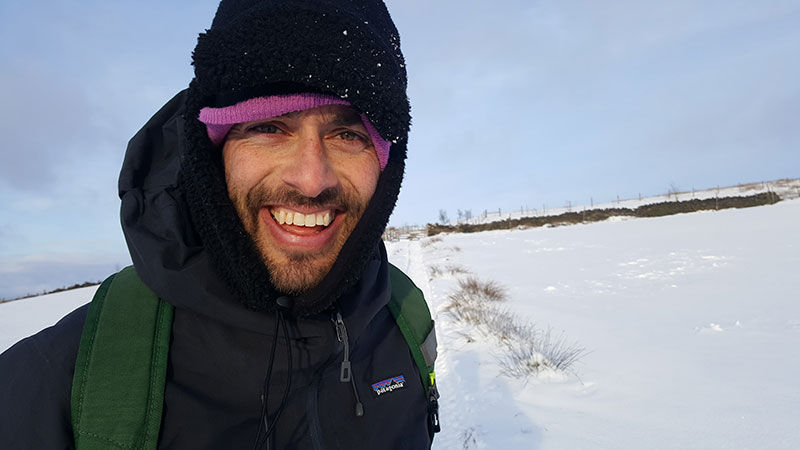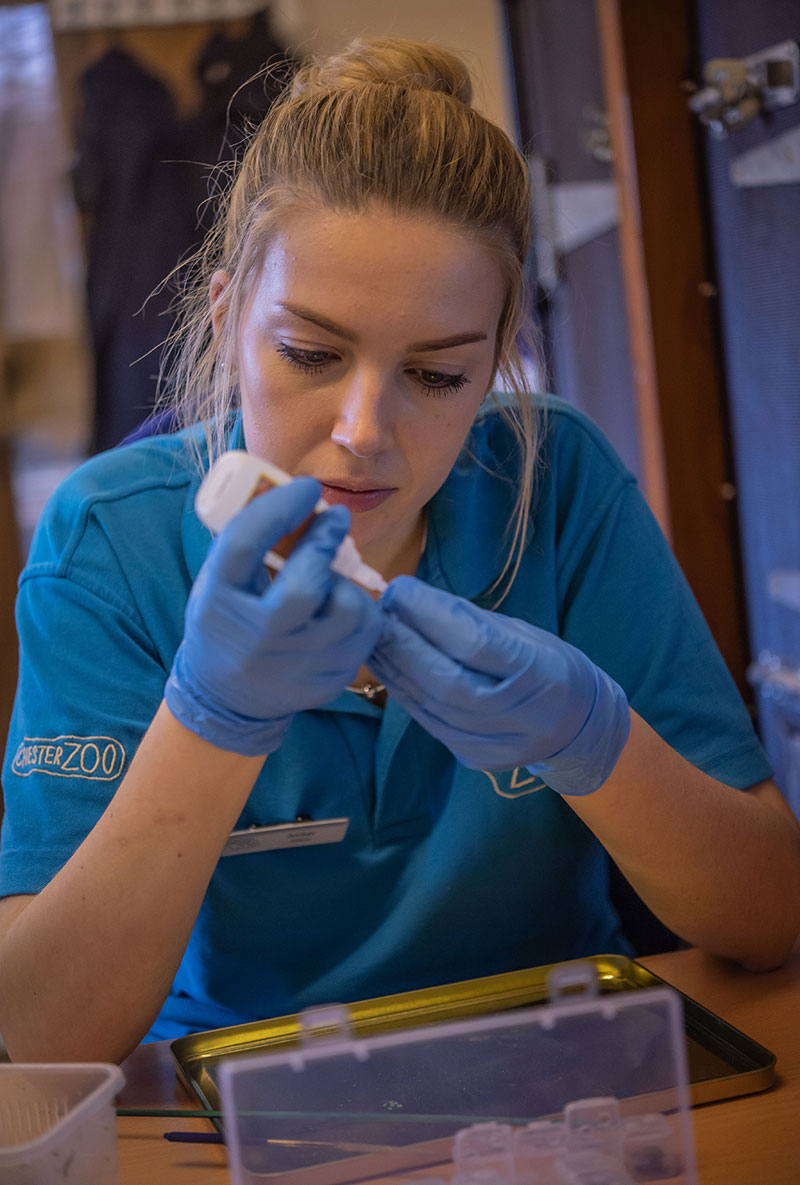Small Steps, Big Impact
Whether it’s population growth, poverty, or poor governance; national or regional conflicts; deforestation or urbanisation; our planet is suffering.
It’s in our news daily.
There are more than 28,000 threatened species across the globe according to the International Union for the Conservation of Nature’s Red List of Threatened Species.
In its latest 2019 update, more than 7,000 species from around the world were added to the Red List and in the last 500 years, 873 species have been declared extinct.
It is clear the natural world is suffering from our global impact, and for many species, it’s only getting worse.
But some people are dedicating their lives to making a difference – and Manchester Metropolitan’s alumni community are amongst those working across the globe to make a positive impact.
Olive Ridley Project
Martin Stelfox’s interest in nature stemmed from school, where he was aptly nicknamed ‘reptile boy’ – building a reptile house with his dad, filling it with more than 100 of his favourite lizards and snakes and showing them off to his school friends.
When he joined Manchester Metropolitan in September 1999, he excelled at the plant biology and animal behaviour modules of his Biological Sciences course, before graduating in 2002 and heading off to travel the world snowboarding and scuba driving.
But whether on the peaks of Alaska, or diving deep in the Philippines, he saw the impact humans were having on the environment and decided to give up the snowboard and do something about it.

After working on an organic farm in Hawaii, with the corals in Thailand and sharks in the Philippines, he finally ended in in the Maldives in 2012, initially working on a waste management programme – and little did he know what impact he was about to make.
The islands may have beautiful white sand and crystal clear waters – but they are also a place where animals such as the sea turtle are seriously endangered.
Stelfox saw the amount of turtles being trapped in ghost nets (abandoned fishing nets) and knew something needed to be done.
It is estimated that 640,000 tonnes of fishing gear is abandoned every year, responsible for trapping and killing millions of marine animals, including turtles.
While working on his recycling project Stelfox was seeing the problem first-hand, so he took to Facebook to ask his fellow biologists for help.
“It wasn’t a new issue I was raising – everyone was aware, but I just decided to step it up a bit. I put a call out to all of the biologists in the area to start recording all of the nets that we find, so we can track and trace where they are coming from.”
From that moment, his idea snowballed and in 2013, his charity, the Olive Ridley Project officially took off.
“It’s not an easy job,” he said.
“There’s a billion people in India alone and a lot of these are on coastal regions and make a living by fishing, so trying to pin point where these nets are coming from is just a monumental task.”

Six years on, the Olive Ridley Project has not only removed more than 1,400 ghost nets and fragments from the Indian Ocean, but has opened the first ever veterinary centre in the country to expand their project to rescue, protect and preserve the sea turtles.
In the first two and a half years of operation, it has treated 99 turtles, out of which 46 were successfully released back into the sea.
The charity uses the centre to provide veterinarian care and rehabilitation to injured marine turtles rescued across the Maldives – some with injuries so severe that they would not survive without the treatment.
The team are now working to educate people at grassroots level on the problems that are occurring and how we can overcome them.
Stelfox said: “I feel positive that we’re going in the right direction. Unfortunately, as our population increases, so does the amount of resource that we are all using. But, I feel that in the current climate, we are much more aware of the issues such as ghost nets, plastic pollution and climate change, and I think we have social media to thank for that.
“I hope that this awareness will turn into action – I would really love for the next generation – my nieces and nephews – to experience what I have growing up and it would be a real shame if they only get to see a sea turtle from a video.”
The Bermuda land snail
For Amber Flewitt, it all started in her back garden – collecting snails, sorting them into colour order and building them a house. But that childhood interest in snails would lead decades later to saving them from extinction.
The Bermuda land snail was unique to the remote oceanic islands and was a big part of the wildlife in the country for many years, surviving radical changes to its landscape over millions of years.
But then people started considering them as pests and a number of invasive species, such as predatory snails, were released into their habitats to kill them off. As a result they were declared extinct around 40 years ago.

But in 2014, the species was rediscovered amongst litter in an alleyway in Bermuda, sparking an urgent recovery mission and a population of the snails were flown to the UK for a unique breeding programme.
Chester Zoo was one of those asked to lead on the project, with Flewitt, a former Manchester Metropolitan student, playing a key role in their recovery. What started as just 60 snails shipped into the zoo has multiplied into more than 25,000 snails, many of whom have been sent back to their natural habitats in Bermuda.
“I guess it can seem a little bit boring to some people – just looking after snails – but I think it’s pretty cool,” said Flewitt.
She started her journey with Chester Zoo while on placement during her undergraduate degree in Wildlife Biology. When she graduated in 2017, she was offered a job at the zoo, starting on the education team before beginning work on the project.

Flewitt started on the project in 2018 and was quick to find out that snails are prolific breeders.
“When I started last year, they thought they had about 3,000 snails, but once I counted them I found something like 8,000.
“Because we had so many we started to plan for the reintroduction and in February this year we took 4,000 snails back to Bermuda, which was a first of its kind for the species. Since returning I found the snails had even more babies and we had around 18,000 snails, so in July had to return to Bermuda to release a further 14,000 – so it’s been quite a big job”
Working with Bermuda Zoo and the Zoological Society of London, the team have worked around the clock looking for the most suitable habitats for the snails, marking them with fluorescent tags, releasing them into the wild and monitoring their recovery – so far the snails have been doing well in their new homes, and for Flewitt, it’s a dream come true.

“I’ve always wanted to be a zoo keeper since I can remember. I’ve always lived quite locally to Chester Zoo and every time I went I used to ask how I could get a job there, so it’s literally my dream job.
“To be able to release animals back into the wild is any zoo keepers dream – we don’t want to keep animals in captivity.
“I’ve always been quite interested in the weirder sort of animals that other people don’t like as much, but I think that’s really important because everything needs a chance at being saved – especially in this case where the species has declined purely due to human interference.
“A lot of people concentrate on the saving the big charismatic animals, but as we’ve seen snails are actually a really easy animal to save, so smaller steps can actually make a big difference.”
